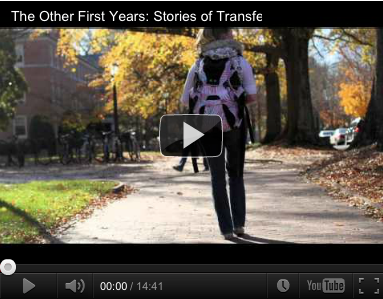
By Grant King ’17, a linguistics major with a double minor in Japanese and speech and hearing sciences, from Southern Pines, North Carolina. King studied abroad in Japan in 2014 as a University of North Carolina at Chapel Hill Phillips Ambassador.
For many who identify as LGBTQ, the prospect of studying abroad can seem both incredibly enriching and downright terrifying. How can I know whether I’ll enjoy my experience in another country? Will I be accepted by the people? Should I consider going back into the closet — if that’s even an option?
These concerns may give us a lot to worry about, but travel as an out-LGBTQ person doesn’t have to be so stressful.
As for any traveler, there are many dimensions of travel and cultural exchange for the LGBTQ individual to consider.
- Will I be safe? – This is probably the most important question, the one your parents ask when you first tell them you want to go to a place they have never heard of.
- Will I have fun? – Let’s be honest. Nobody wants to spend a fortune and 22 hours on a plane just to wish they were back home.
- Will I connect? – Most of us hope that we will make some really great friends, both with other travelers and with locals. We want to enjoy and feel welcomed by the country and its culture. We want to see what it feels like to live a life different from our own.
The good news is that by using resources available to you, you can prepare yourself to have an awesome time regardless of your identity or destination.
Assistant director of the UNC LGBTQ Center Angel Collie, who spent years of his life as an international advocate for LGBTQ issues and traveled to 42 countries before the age of 30, says there are a number of factors working to your advantage abroad. Two of these factors are cultural differences and foreigner exceptionalism.
It may seem surprising, but gender and sexual stereotypes around the world are often completely different than in the United States. In some countries, such as Uganda, male friends regularly hold hands, an act often seen as a statement of sexuality in the U.S. In many Asian countries, standards of masculinity and femininity are also different. In his time in Kyrgyzstan, Collie was surprised that he was often identified as a woman because of his gauged earrings. In Korea, on the other hand, men regularly wear earrings and sometimes makeup.
It is nearly impossible to navigate the maze of all the cultural expectations and stereotypes of different countries around the world. That’s why, according to Collie, it’s a good thing you don’t have to be perfect. The word for “foreigner” — mzungu in Kiswahili, gaijin in Japanese — already comes with a set of stereotypes about cultural insensitivity and strange behavior. Though the presence of these stereotypes doesn’t mean that one can or should travel without doing their best to understand local practices, these preconceived notions do give travelers leeway for mistakes and non-conforming behavior.
On the other side of the same coin, when dealing with local communities, especially LGBTQ communities, it is important to realize that locals might celebrate, or feel the need to conform to, customs that we aren’t familiar with.
“The first problematic trope that is really easy to fall into when coming from a Western perspective is assuming that the language and concepts that we understand as LGBTQ and queer… are the same as the local understandings, especially historic and cultural identities,” Collie said.
The meaning and language of self-expression is going to vary wherever you go. As travelers and as activists, we need to make sure that we approach communities from a place of support and understanding, and do so without putting them at risk.
So you may not need to worry about conforming or “passing” when you’re abroad, but there’s still the burning question: “Should I actually come out?”
According to Noel Bynum, advisor in International Student and Scholar Services, it really depends on the situation.
Bynum has traveled to many world regions, including Western Europe, South Africa and Singapore, to do LGBTQ-related research. He advises students to do their own research before deciding to head off, and especially to consult with University advising services and outside resources. The U.S. Department of State, for instance, maintains a database of human rights trends and legislation in countries around the world, which includes information about discrimination against sexual and gender minorities.
Other resources that Bynum recommends include the plethora of LGBTQ travel networks and blogs that can be found online. Much of the information from these resources is very general, however, and should be taken with a grain of salt.
“No country is 100 percent an LGBTQ mecca,” cautioned Bynum. “There are going to be regional differences and differences of opinion … wherever you go.”
Wherever you are, you should always judge each situation for yourself rather than relying entirely on what you have learned online or through advising to decide whether coming out is the right choice. Countries are made up of individuals, and while knowing general cultural trends can be very useful, not everyone you meet is going to be the prototypical representative of their country. If you continue to use the same sort of sound judgement that has gotten you this far in the U.S., you should be on the right track. And if you do feel like you need more guidance, Bynum, Collie and other advisors at the LGBTQ Center and UNC Global are here to help.
Cultural sensitivity, respect and caution are important virtues for any traveler. But trying to conform to an American notion of “straightness,” “gender binary” or any other normative paradigm while traveling is probably not necessary. Regardless of your identity, people around the world will open up to you if you show them compassion and an interest in their way of life. So stop worrying so much, get out there and be your genuine self.
Additional resources on the topic of LGBTQ travel:
My Gay Travel Guide
National Center for Transgender Equality: Know Your Rights, Airport Security
ILGA – International Lesbian, Gay, Bisexual, Trans and Intersex Association
LGBTQ and related resources at UNC:
Angel Collie, Assistant Director, LGBTQ Center
Noel Bynum, International Student Advisor, International Student and Scholar Services
Jaclyn Gilstrap, Program Officer, Center for Global Initiatives



